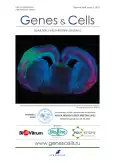Cognitive decline and affective alterations in SCA2-58Q mice
- Authors: Marinina K.S.1, Bezprozvanny I.B.1,2, Egorova P.A.1
-
Affiliations:
- Peter the Great St. Petersburg Polytechnic University
- University of Texas Southwestern Medical Center
- Issue: Vol 18, No 4 (2023)
- Pages: 622-624
- Section: Conference proceedings
- URL: https://journals.rcsi.science/2313-1829/article/view/256287
- DOI: https://doi.org/10.17816/gc623381
- ID: 256287
Cite item
Abstract
The cerebellum is traditionally recognized as a brain region dedicated to motor control and movement coordination. Yet, the growing body of research has recently highlighted the cerebellar role in cognitive processes, learning, and emotional states. Patients with damage to this particular region of the brain exhibit deficiencies in verbal communication, impaired speech, executive functions, and memory, along with various affective disorders [1]. In the field of neurodegeneration research, the cerebellum is primarily recognized for its role in the onset of spinocerebellar ataxias (SCAs). SCA2 is an autosomal dominant polyglutamine-related neurological disorder resulting from a notable escalation in the number of CAG triplet repeats that encode the amino acid glutamine in the ATXN2 gene. The mutated protein ataxin-2 fails to perform its molecular functions, disrupting calcium homeostasis and cellular activity, ultimately resulting in widespread Purkinje neuron death in the cerebellar cortex [2]. In our research, we used SCA2-58Q transgenic mice that express the mutant human ataxin-2 gene under the action of the Purkinje-specific promoter (PCP2/L7). Each of these tests were aimed at evaluating specific aspects of the mice’s behavior. This model enabled to investigate the direct involvement of Purkinje cells in the cognitive and affective symptoms associated with SCA2. Our team conducted three behavioral tests to determine the anxiolytic behavior: the open field test, the novelty suppressed feeding test, and the light-dark place preference test. The novel object recognition and fear conditioning tests were used to assess recognition and contextual memory, respectively. The Morris water maze test was conducted to evaluate spatial learning and memory. The researchers assessed depression and anhedonia levels using the forced swimming, tail suspension, and sucrose preference tests. The study revealed anxiety, spatial memory impairment, and affective decline in 7–8-month-old SCA2 mice. Previous results of the beam walk test [3, 4] indicated a delay in motor skill development in SCA2-58Q mice, which began at 8–10 months of age. This indicates that cognitive decline and affective changes occur before the primary motor impairment in spinocerebellar ataxia type 2. Currently, there is no disease-modifying treatment for SCA2, and patients are typically given supportive therapy and treatment for individual symptoms. In conclusion, our research provides a more comprehensive clinical picture and takes a step towards optimizing the diagnosis and selecting more effective therapy options for SCA2.
Full Text
The cerebellum is traditionally recognized as a brain region dedicated to motor control and movement coordination. Yet, the growing body of research has recently highlighted the cerebellar role in cognitive processes, learning, and emotional states. Patients with damage to this particular region of the brain exhibit deficiencies in verbal communication, impaired speech, executive functions, and memory, along with various affective disorders [1]. In the field of neurodegeneration research, the cerebellum is primarily recognized for its role in the onset of spinocerebellar ataxias (SCAs). SCA2 is an autosomal dominant polyglutamine-related neurological disorder resulting from a notable escalation in the number of CAG triplet repeats that encode the amino acid glutamine in the ATXN2 gene. The mutated protein ataxin-2 fails to perform its molecular functions, disrupting calcium homeostasis and cellular activity, ultimately resulting in widespread Purkinje neuron death in the cerebellar cortex [2]. In our research, we used SCA2-58Q transgenic mice that express the mutant human ataxin-2 gene under the action of the Purkinje-specific promoter (PCP2/L7). Each of these tests were aimed at evaluating specific aspects of the mice’s behavior. This model enabled to investigate the direct involvement of Purkinje cells in the cognitive and affective symptoms associated with SCA2. Our team conducted three behavioral tests to determine the anxiolytic behavior: the open field test, the novelty suppressed feeding test, and the light-dark place preference test. The novel object recognition and fear conditioning tests were used to assess recognition and contextual memory, respectively. The Morris water maze test was conducted to evaluate spatial learning and memory. The researchers assessed depression and anhedonia levels using the forced swimming, tail suspension, and sucrose preference tests. The study revealed anxiety, spatial memory impairment, and affective decline in 7–8-month-old SCA2 mice. Previous results of the beam walk test [3, 4] indicated a delay in motor skill development in SCA2-58Q mice, which began at 8–10 months of age. This indicates that cognitive decline and affective changes occur before the primary motor impairment in spinocerebellar ataxia type 2. Currently, there is no disease-modifying treatment for SCA2, and patients are typically given supportive therapy and treatment for individual symptoms. In conclusion, our research provides a more comprehensive clinical picture and takes a step towards optimizing the diagnosis and selecting more effective therapy options for SCA2.
ADDITIONAL INFORMATION
Funding sources. This work was supported by the RSF, grant No. 22-75-10030.
About the authors
K. S. Marinina
Peter the Great St. Petersburg Polytechnic University
Author for correspondence.
Email: ks.marinina@bk.ru
Russian Federation, Saint Petersburg
I. B. Bezprozvanny
Peter the Great St. Petersburg Polytechnic University; University of Texas Southwestern Medical Center
Email: ks.marinina@bk.ru
Russian Federation, Saint Petersburg; Dallas, USA
P. A. Egorova
Peter the Great St. Petersburg Polytechnic University
Email: ks.marinina@bk.ru
Russian Federation, Saint Petersburg
References
- Schmahmann JD. The cerebellum and cognition. Neuroscience Letters. 2019;688:62–75. doi: 10.1016/j.neulet.2018.07.005
- Egorova PA, Bezprozvanny IB. Molecular Mechanisms and Therapeutics for Spinocerebellar Ataxia Type 2. Neurotherapeutics. 2019;16(4):1050–1073. doi: 10.1007/s13311-019-00777-6
- Egorova PA, Gavrilova AV, Bezprozvanny IB. In vivo analysis of the climbing fiber-Purkinje cell circuit in SCA2-58Q transgenic mouse model. Cerebellum. 2018;17(5):590–600. doi: 10.1007/s12311-018-0951-4
- Liu J, Tang TS, Tu H, et al. Neurobiology of Disease Deranged Calcium Signaling and Neurodegeneration in Spinocerebellar Ataxia Type 2. Journal of Neuroscience. 2009;29(29):9148–9162. doi: 10.1523/JNEUROSCI.0660-09.2009
Supplementary files









